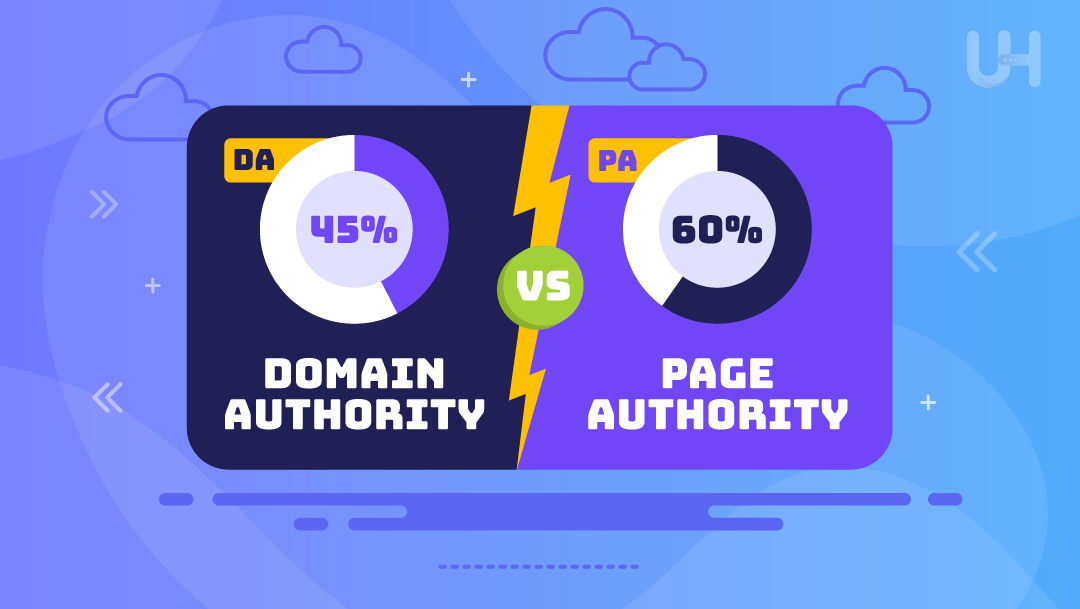In the world of SEO, understanding metrics like Domain Authority (DA) and Page Authority (PA) is crucial to improving your website’s performance in search rankings. Both DA and PA are created by Moz, and they provide valuable insights into the strength and ranking potential of websites and individual pages. However, these two metrics serve different purposes and have distinct roles in your SEO strategy.
This article will explore the key differences between Domain Authority and Page Authority, their impact on SEO, and how you can use them to optimize your website’s ranking potential.
What is Domain Authority (DA)?
Domain Authority is a score that predicts how well a website, as a whole, will rank in search engine results. DA ranges from 1 to 100, with higher scores indicating a greater ability to rank. The score is calculated using a variety of factors, including the number and quality of backlinks pointing to the website.
How is Domain Authority Calculated?
Backlink Profile: The quantity and quality of backlinks are the biggest contributors to DA. High-authority websites linking to your domain boost your DA significantly.
Linking Root Domains: The number of unique domains linking to your site.
MozRank and MozTrust: Metrics that evaluate the quantity and quality of incoming links.
Social Signals: Although less impactful than backlinks, social signals like shares and mentions can contribute to DA.
What Does Domain Authority Measure?
DA is a comparative metric, meaning it’s most useful when comparing your domain’s authority to your competitors’. It doesn’t guarantee specific search rankings but gives you an idea of how strong your domain is compared to others in your niche.
SEO Impact of Domain Authority
A higher DA generally means that your website is more likely to rank well across a broad range of search terms. However, it's important to note that DA is not a ranking factor used by Google but rather a third-party metric created by Moz. Improving your DA can still indirectly improve your Google rankings by helping you attract higher-quality backlinks and build site trustworthiness.
What is Page Authority (PA)?
Page Authority is another Moz metric that predicts how well a specific page on your website will rank in search engine results. Like DA, PA is also scored on a scale from 1 to 100. It focuses solely on individual pages, rather than the entire domain, and gives you insights into how well a specific page is optimized for search.
How is Page Authority Calculated?
Link Profile of the Page: The number and quality of inbound links pointing to the page itself.
Internal Linking: How well your internal linking structure supports the page.
Content Quality: The relevance and comprehensiveness of the page’s content.
On-Page SEO: Factors like keyword optimization, meta tags, and alt text play a role.
What Does Page Authority Measure?
PA evaluates the ranking strength of a single page. While Domain Authority gives a broad overview of a website’s ranking potential, Page Authority drills down into the specific pages to provide more granular insights.
SEO Impact of Page Authority
A high PA score indicates that a particular page is likely to perform well in search results, especially for targeted keywords. Increasing PA for important pages, such as your homepage or cornerstone content, can drive more traffic to your site and improve overall search visibility.
Key Differences Between Domain Authority and Page Authority
While both DA and PA are valuable SEO metrics, they serve different purposes and are calculated differently. Here’s a breakdown of the key differences:
Which is More Important for SEO: DA or PA?
Both Domain Authority and Page Authority are important for different aspects of SEO. However, their relevance depends on your specific SEO goals:
When to Focus on Domain Authority:
Brand Awareness and Authority: If your goal is to establish your website as a trusted source in your industry, improving your DA should be a priority. A higher DA will improve the overall visibility of your domain across many search queries.
Broad Ranking Potential: DA impacts the entire site, making it essential for gaining rankings across various keywords, especially in competitive industries.
When to Focus on Page Authority:
Targeting Specific Keywords: If you’re aiming to rank for a particular keyword or phrase, improving the PA of the page targeting that keyword is crucial. For example, if you have a blog post optimized for a high-volume keyword, you’ll want to focus on increasing that page’s authority.
Content Marketing: For pages that serve as key content hubs or landing pages, increasing PA will help drive more organic traffic to these high-converting pages.
How to Increase Domain Authority
1. Build High-Quality Backlinks
Focus on acquiring backlinks from authoritative websites to boost your domain’s overall trustworthiness and authority.
2. Create Valuable Content
Develop long-form, evergreen content that others want to link to and share. The more valuable your content, the more links and social signals you will generate.
3. Improve On-Page SEO
Optimize your website structure, navigation, and metadata to ensure that your site is crawlable and user-friendly.
How to Increase Page Authority
1. Internal Linking
Link to important pages from other high-authority pages on your site. This distributes link equity and boosts the page's authority.
2. Focus on On-Page SEO
Optimize the page with relevant keywords, quality content, and proper meta tags to improve its ranking potential.
3. Earn Page-Specific Backlinks
Promote the page specifically to earn backlinks. For example, if you have a cornerstone blog post, reach out to bloggers, influencers, and media outlets to get links pointing to it.






0 Comments